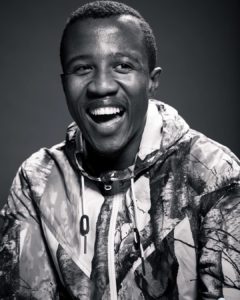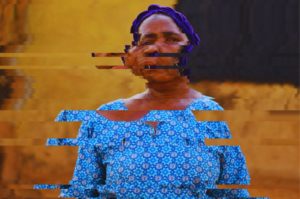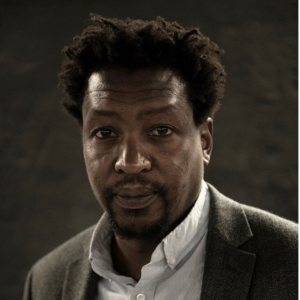
On the morning of our mother’s funeral, three women showed up unannounced and unavoidably. Three women I had seen before. Three women my mother would not have seen before. But they would have seen her. My mom was just that kind of woman. Like a big and bright red apple in a pile of mix-and-match fruits at the supermarket, she stood out, going out of her way not to show the rot she harboured inside of her. She was no criminal. She hadn’t stolen another woman’s man, she simply had cancer. It had gnawed away at her insides, but she determinedly held onto her beauty. It carelessly peeled her from the inside first; bit by bit, like a veld fire, until the entire field was just black ashes.
So she smiled and spoke gently, sometimes playfully. Grateful she could still manage a smile, and that people could see it too. She welcomed friends and neighbours in, whenever they needed her advice or to borrow cash, or to gossip. Whenever she did, she made tea for them and herself, without asking how they took it: she liked her rooibos tea black with three teaspoons of sugar. Later, she swapped white sugar for brown, because she heard from her doctor that even though sugar was generally more harmful than nutritious, brown sugar was a far better option than its white counterpart. So her visitors would drink the same.
When we were younger, before cancer staged an arson attack to her insides, her visitors would come in to complain about how my brother and I had broken their windows while playing cricket, others would come to borrow some money from her, and others (according to our mother herself) were simply there to check what changes she had made to the house, so they could gauge how much our father’s estate had paid out. As far as we could tell, most people loved our mother, and those who didn’t were probably bemused as to why she was so cherished. Mostly, she preferred to stay at home when she wasn’t at church.
The three women showed up in black body-hugging dresses and black shoes and black headwraps, as you would expect them to for a funeral. But they walked oddly. They walked as if were dragging cement blocks with ropes tied around their respective necks: their heads pulled back, their lower backs were sucked in and their gaits laboured. They rested their hands on their hips, and occasionally rubbed their stomachs, which protruded glaringly and made their figure-hugging dresses stretch even further. They trudged behind each other in their matching outfits, as if they were models on a runway, walking their umpteenth show for the night.
They were heavily pregnant.
If I wasn’t already disoriented from the lack of sleep over the past week, because of the endless, soul-destroying funeral plans, I would have been unnerved. But I was dazed. All I saw were three walking question marks.
I don’t know when exactly my mother was diagnosed with cancer, but I remember the week she finally broke the news to me; she had made us amasi (my favourite) for dinner, as if she thought it would be enough to soften the blow she was about to deliver, as if I was the one who needed comforting.
“Surely you need to see another doctor, ma,” I had said. This is the same doctor who told she may have some thing called celiac disease. He had prescribed a slew of medication, which she took diligently, even without any noticeable difference in her discomfort. But she kept going back to him, and he would prescribe some more. By the time we found out that she had reached Stage 4 cancer, and that Prince Mshiyeni Hospital had no oncologists or any CT scanners, it was too late. Even after she had undergone a CT scan, she had to wait months to begin with her radiotherapy sessions. So she wasted away in her hospital bed, while I sat beside her, wasting an opportunity to tell her what I had always wanted to.
Instead, I spent days trying to categorise the changes in her walk and her appetite and her volatility into the different stages of her cancer. Every mood swing and loss of appetite and sudden tears and wailing belonged to a different stage. By Stage 4; she was as thin as the carrots she could no longer ingest, my jokes were no longer funny, she no longer made jokes of her own either, and the job of changing her stoma bag had fallen to me. I wished for my brother to come back home to help out. I thought about moving her out of hospital and back home and hiring a nurse to help, but the guilt would have killed me before the cancer could kill her.
But with each passing moment was an opportunity wasting away. One night, I gave her a kiss on the forehead and promised I’d be back the next morning.
On my way home something told me that I was running out of time, and that things wouldn’t be this way for very much longer. Every night could be the last time I see my mother alive, I told myself.
So I took a detour. When I got to Avoca Hills, I called her to come out and see me, as I was parked a few metres from her family home. I don’t remember her name. I could check my phone, but I had since blocked her, so she couldn’t get a hold of me again.
The next day I did the same thing – except this time, I drove to Westville, and made a similar call: I’m parked a couple of metres from your gate, I’m here to see you because I miss you so much.
I did this for three consecutive weeks. I lied. I charmed. I fucked all of them in desperation until they made me stop. Until my penis felt as though it would never stand again. Then I would leave, and instead of calling the same girl the next day, as per my promise, I’d call another – someone who wouldn’t enquire as to why I suddenly felt to strongly about them. I couldn’t tell them time was running out on me. I needed them to help fulfill a dream that I couldn’t deliver for my father, and that my mother could suffer the same letdown if I didn’t act immediately. But people are only available to you if you’re available to them, and I had plundered their bodies in search of something I didn’t particularly care for, but needed.
***
My younger brother drew gasps from the entire room, when he came out of his bedroom in shorts and a crop top. It had scarcely been two hours since we had laid our mother to rest. It had likely been over a decade since people here had last seen him. I’m not sure whether the shock was from seeing a man in what a woman would be expected to wear, or how skinny he had become, revealing his taut midriff and tattoos. Maybe it was the sheer audacity of the man, who seemed to move on from his mother’s burial as quickly as he moved on from the gawking adults who had come from all over to share their condolences and eat some stew and dumplings and drink all the sorghum beer and cold drinks we had spent so much money in gathering to thank them for their support and commiserations.
I cringed too.
I thought I had accepted who he was a long time ago. I liked his Instagram posts about and with his male friend. Once, Phumlani had posted a picture of the pair of them in what looked like women’s blouses and no pants, and earrings and even eyeliner. He wrote in his caption: “You make me do things I never thought I was brave enough to confront. You let me make decisions for my career, even when they make you uncomfortable. You remind me each day that our honeymoon phase never ended. I am resolute in my skin, and it is because you taught me how to love myself by loving me for who I was and who I am. Even in darkness I will follow you.”
It seems trivial, but I agonised for close to an hour over whether to like that picture or not. Not because they didn’t look good together, or that the picture was of an unsatisfactory quality, but because of what it meant for me. I thought if I liked that picture, he would see it as being my support, but the people following me would see that I had liked it and believe I was condoning it. Eventually, I opted to send him a Whatsapp message.
“That was quite a picture you posted on your Instagram today,” I wrote.
A little scroll up showed that the previous occasion we chatted was a week earlier, when we were making plans to come down to Umlazi for our mother’s funeral.
“Hahaha. Thanks, why didn’t you like it?” he asked.
“I do like it,” I said.
“You know what I mean. You didn’t double-tap on the picture to show your love.”
“Oh.”
He LOLed. In that way that suggested he was onto me, but didn’t want to make a big deal out of it, because he knew me that well. He knew how the most frivolous of things could make me squirm.
I logged back onto Instagram and liked that picture of him and his boyfriend in an attempt to ease my guilt, but I felt even guiltier having done that. I felt like a fraud. I was a fraud. Our mother had always told us to do what we say we will do and mean what we say. No half measures she said. But I couldn’t be Phumlani. I was jealous of him. I was jealous because, even though he is my younger brother, I was the timid one. He found his footing in this world, and when he enters a room, it’s as if he’s a peacock unfurling his colourful feathers and illuminating the room and lifting the disposition of everyone in sight.
I watch him now, as he fixes his Ray Ban shades and carefully places a fedora hat on his bald head now, as if wearing a hat was an art and he was a fussy flower arranger well-versed in the technique of floristry. He puts on black jeans and a crop top to reveal his tattoo of our mother’s name: Nkanyezi. He had just applied an ointment to it.
“I didn’t know you had a tattoo,” I said.
“There are many things you don’t know about me, Thulani.”
We both fell silent. When he left for the University of California (he calls it UCLA), we promised we would call each other at least weekly. He said he would send me his Skype name and iMessage number. After a brief message that read, “Arrived safely. I’m tired AF. Chat soon. P,” I didn’t hear from him for another two weeks. So I had found him on Instagram and requested to follow him because his account was locked. I checked his page incessantly, as if a pregnant woman with a pregnancy test stick. I waited and waited for a positive outcome.
“When did you get it?”
“Just before I flew down here.”
“This week? So it must still be painful, if you’re applying that ointment. Isn’t it?” I asked, in as casual a way as I could muster. I didn’t want to sound too disturbed or intrigued.
“The pain only lasts for as long as it is still being done. Besides, I was drunk when I got it done. I drank so much after you called to tell me about ma.”
“Isn’t that dangerous? I hear that your blood thins and you get bleed quite profusely,” I said. My mask truly removed.
He laughed.
“Thulani, please. I’m fine and I didn’t bleed, and it looks good. Don’t you think?”
“It does.”
“Thank you.”
“I’m a little surprised,” I said.
“Why? It’s not my first tattoo. I have a couple elsewhere,” he said.
“Oh. But this one specifically… it’s mom’s name.”
“I got her name on my torso for a reason.”
“Which is?”
“She always used to tell me how I ruined her figure. How I was such a fat baby, that she had to have a C-section, and that when the cold and rainy weather came in, she always knew before everyone else because the tingle of her scar would tell her so.”
“Are you tell me that all those occasions whenever she told me to hurry and fetch the clothes from the washing line, it was because she knew it was going to rain because of her scar?”
“Well, was she ever wrong?”
She was never wrong.
“I mean, she was wrong about other things,” he suddenly added, jolting me out of my daydreaming.
“Like?”
He laughed.
Phumlani had come out to our mother long before he left for America. I often wondered if she would have preferred that I be the one to go away, and Phumlani to stay behind. She said she didn’t know how I had morphed into a stuttering and tentative man, when I was so exuberant in primary school. I was made Head Boy in Grade 7. I swam freestyle and breaststroke and I sang in the school choir. It all came to a screeching halt when I reached Grade 8, and my mother was called in for a meeting by Mrs Daniels. She told my mother that she thought I was a prodigious talent and that I could go very far if I received the right amount of guidance and support. She told my mother that I was a rare find. She said it was almost impossible to find a countertenor. I remember her trying to describe what a countertenor was to my mother – she said I sang pieces usually reserved for female mezzo-sopranos. She said that meant I sang in a high girlish tone, which when controlled well, could be spellbinding. She told my mother I exhibited great control, and that it would be her pleasure to help nurture my voice. My mother was excited about hearing Mrs Daniels mention the University of Cape Town and scholarships and how I could one day sing on stages all over Germany, home to some of the biggest opera premieres in the world. While she heard that, only her reference to my girlish voice rang around my head like a tennis ball bouncing between walls. I couldn’t quieten it down.
I told them I wanted to play soccer. I told her I wanted to be like Ruud van Nistelrooy was for Manchester United and PSV Eindhoven before that. A goalscoring machine. Every weekend, I sat in front of the TV and watched David Beckham and Ryan Giggs and Paul Scholes and Juan Sebastian Veron feed Ruud pinpoint crosses and him slotting goals as delicately as only he could.
Phumlani fixed his fedora again. I cleared my throat and I gave him a brief look as if to show that I could handle whatever he was about to say.
“Thulani, imagine where you would be in life if you hadn’t folded into yourself and became what you thought people wanted you to be?”
“You thought you needed to be a big brother to me and teach me that playing sports was what we were meant to do, so we could get our passes into the world of masculinity. You thought you needed to shun your teacher’s advice and her keen eye for talent, because it wasn’t what our parents would have preferred. You thought that if you forced yourself to sleep with these women, so they could bear children for you, or rather, for our parents, that it would free you. You’ve now gone and burdened six more people – three women who will have to love these three children despite them being a reminder that they were conceived out of desperation and not adoration.”
About the Writer:

Andile Ndlovu is a Johannesburg-based journalist who can’t afford to quit his full-time paying job and focus on his manuscript, which is also why he has not approached any prospective publishers of this said manuscript – for fear he will miss deadlines. He is also frustrated with its arc, and has momentarily abandoned it. For now, he continues to write short stories and apply for writing fellowships all around the world. His short story, “Love Is Not Apolitical,” was shortlisted for the Brittle Paper Anniversary Award in 2017.









COMMENTS -
Reader Interactions